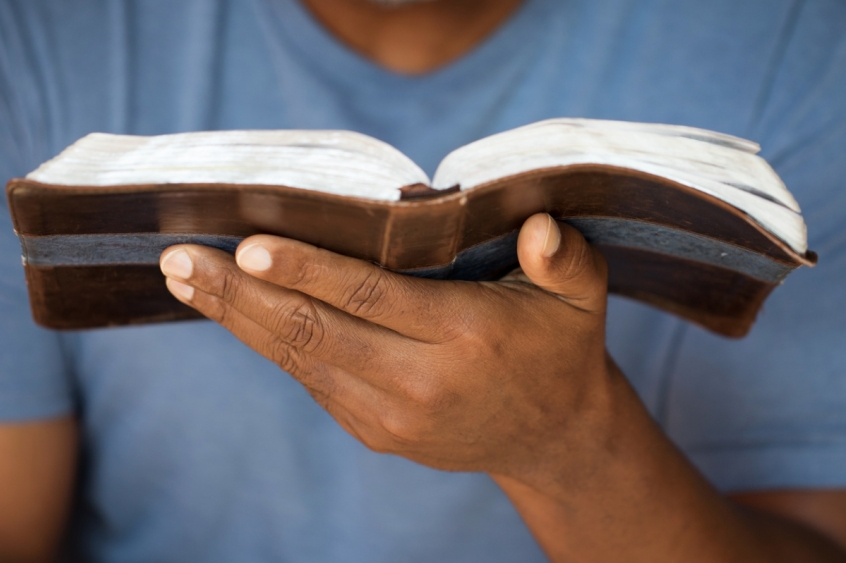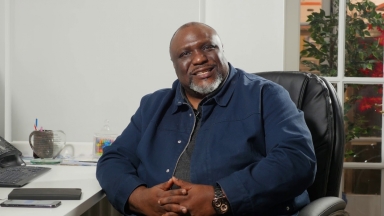
The National Church Leaders Forum (NCLF) launched their second manifesto for action earlier this year. The manifesto addresses issues faced by the African and Caribbean communities and makes recommendations to increase social and political engagement.
Christian Today spoke with Rev Ade Omooba, Chair of the NCLF, to hear his thoughts on the political engagement of black churches and the impact the manifesto is having on minority communities.
The NCLF wants the manifesto to act as a 'catalyst' for more black Christians to vote. How successful do you think this will be?
AO: The manifesto serves indeed as a catalyst and a proactive effort to ourselves, congregants, communities and other stakeholders within our nation, to be intentional in making policymakers understand and be aware of our realities.
Policies need to reflect our realities to effect progressive transformation. Hence, we're not asking what can be done for us but what we are doing, must do, and will do to be the change agents within our communities and nation at large.
What do you hope for the manifesto to achieve?
AO: We want the NCLF and this manifesto to be one voice for the black Church - a focus for collective action aimed at progressive transformation as it were. And we want our churches to fully engage with the wider socio–political issues and to better understand the times, so that through that we can be salt and light in our communities.
To achieve all we aspire and hope for, as detailed within the manifesto, voting and political mobilisation is key and there is a section dedicated to this within the manifesto with recommendations and live online forums to ensure we're engaging our own and empowering them to utilise the power of their vote.
The NCLF seeks to bring greater cohesion and unity to African and Caribbean Christians, and to represent and give greater visibility and voice to the mission of the black church in the UK. Hence, this second edition of the manifesto.
CT: One of the goals of the manifesto is to encourage more African and Caribbean people to register to vote and engage with the democratic process. Why do you think so few African and Caribbean people in the UK are registered to vote?
AO: I must first give credit to the many people, organisations, groups and parts of the Church that work tirelessly to inform, educate and encourage African and Caribbean people to register to vote and then actually vote in the elections. Their efforts have real impact but the numbers registered to vote need to improve significantly.

Mindsets play a major role as to why fewer people from the African Caribbean community register to vote. In my view, your vote is your right, it's your authority, it's your influence, so use it well.
Voting is not something we do just one time on a single day, just making an appearance on election day. It takes days, weeks, months and years of preparing yourself to make the right choices and not leave it to chance.
What we also want though is for those who are registered already to encourage and mobilise others within their sphere to do the same.
CT: Do you feel the black churches in the UK could speak out more against injustice?
AO: We are doing a lot but we can always do more across various spheres of society. In so many areas the voice from the church is mute while the noise in the city is louder. A true leader becomes a voice for the people they serve, and the church over decades and centuries has gained the right and responsibility to speak as an authoritative and prophetic voice through its stewardship, which is what authenticates leadership.
Injustice for me anywhere is injustice everywhere and while presidents and prime ministers will say they have a duty to speak and act on such matters, they aren't the only ones primed to minister or preside over such matters. The Church is equally primed to minister and preside over such matters with courage, conviction, clarity and compassion. The Church has a duty of care to be an authoritative and prophetic voice on matters of injustice as biblically inspired and instructed.
Have you seen any positive change come about as a result of the manifesto?
AO: We've seen greater cohesion and unity amongst African and Caribbean Christians, and an improvement in representation, visibility and voice to the mission of the black Church in the UK.
But the African and Caribbean community needs to be more cohesive and coherent in responding to the opportunities and challenges within our communities.
The Church is often deemed to be one of the most stable institutions in our communities and the NCLF as a forum of leaders wants to lead by example to encourage greater cohesion, visibility and voice to all those in our communities who have incredible potential. For me, that's plausible improvement and development.
What is required for effective mobilisation of the black Church?
AO: I would encourage all black Christians in the UK to get involved with the NCLF and this manifesto and let it be our one voice - collective action for progressive transformation.
Let's together create greater cohesion and unity amongst African and Caribbean Christians, and improve our representation, visibility and voice of the mission of the black Church in the UK.
It's about cohesion and unity at every level, in word, deed and prayers - different faces, different spaces, different places, but the same message. Change is difficult but it is possible.













